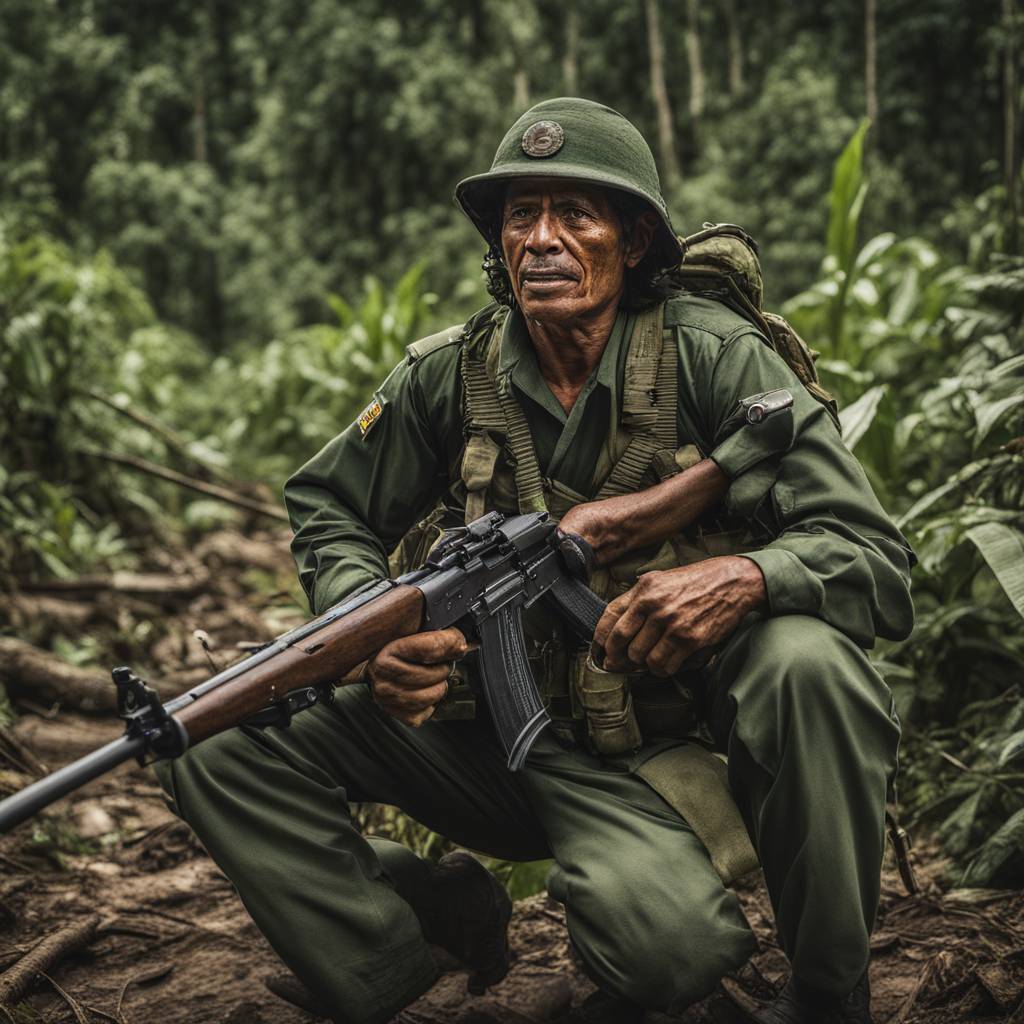Colombia experienced a series of attacks on Thursday night and Friday morning, marking the first major assault against the military since a mafia group formed from the now-defunct FARC announced an escalation of operations earlier in the week. These attacks in the southwest region involved explosives and firearms, resulting in a soldier being wounded. The cease-fire between the FARC dissidents and authorities was suspended after the dissidents violated a truce by attacking a rural Indigenous community in the same region where the recent attacks occurred. This setback for President Gustavo Petro, a leftist ex-guerrilla leader, who campaigned on a promise of achieving “total peace” in a country with a history of violence.
The injured soldier was guarding a military headquarters in Tumaco when he was wounded by shrapnel from a grenade thrown by a man on a motorcycle. Another explosive device was thrown in front of a military facility in Cali just minutes before, although no injuries were reported. The FARC dissidents were responsible for this attack, using tactics involving vehicles and explosives to target military installations. The military was conducting operations against two different factions of FARC dissidents, known as the Segunda Marquetalia and Estado Mayor Central, in the regions of Valle del Cauca, Nariño, and Cauca.
A third attack occurred early Friday in a rural area near Cali, where armed fighters fired at a police station from the mountains. The police requested reinforcements from the army but were attacked by mafia fighters throwing gas cylinders filled with explosives and shrapnel. These FARC dissidents emerged after the 2016 peace accords between guerrillas and the government began to break down, leading to renewed armed conflict. The surge in violence in Colombia in recent years has been fueled by a mix of smaller narco-trafficking militias vying for territory and power.
President Petro has aimed to address the root causes of violence in Colombia by shifting from military tactics to negotiating peace agreements with armed groups and addressing poverty. Despite these efforts, violence has not decreased, and some militias have taken advantage of ceasefires to expand their operations and gain territory. The challenge of maintaining peace and stability in Colombia remains a significant hurdle, with violence continuing to pose a threat to the nation’s security and stability. The recent attacks highlight the ongoing struggle to confront and address the legacy of conflict and violence in Colombia.













